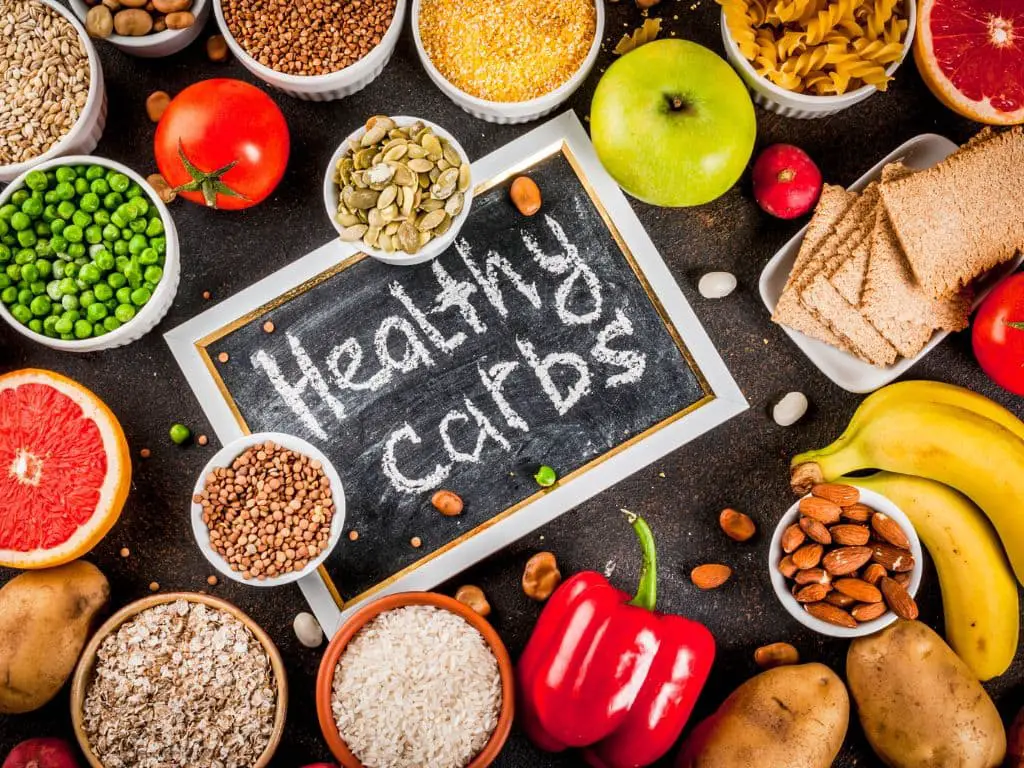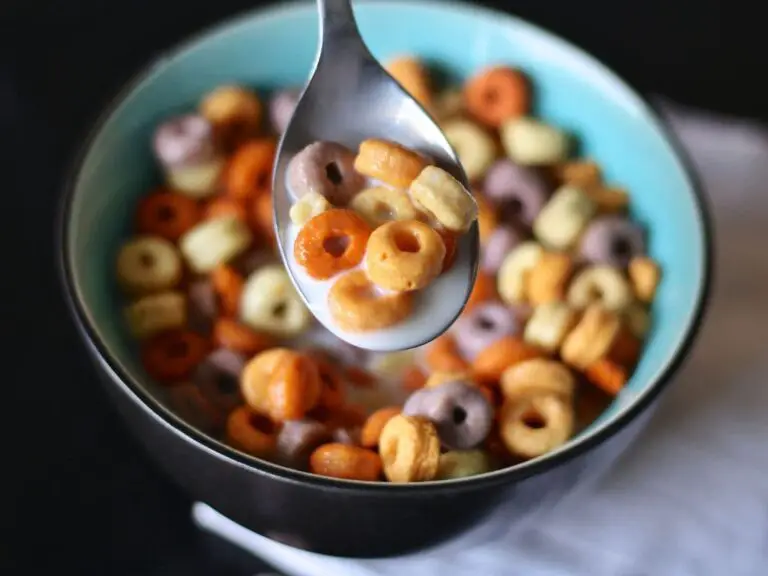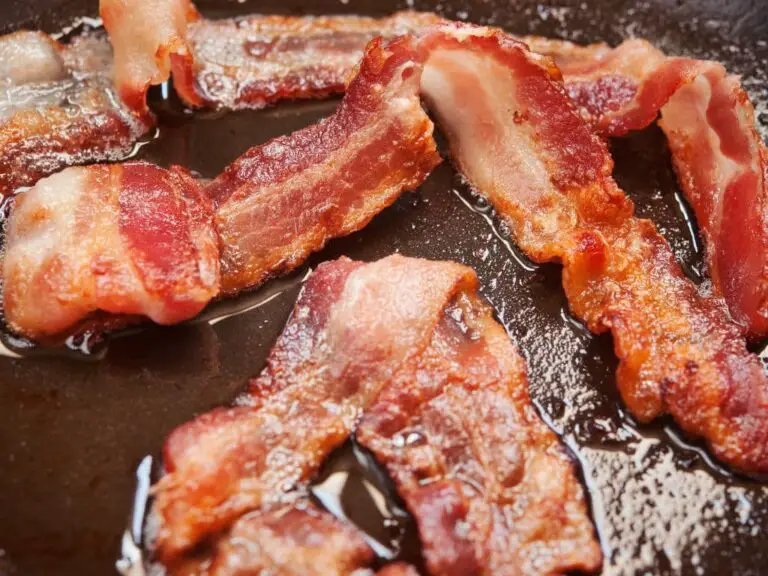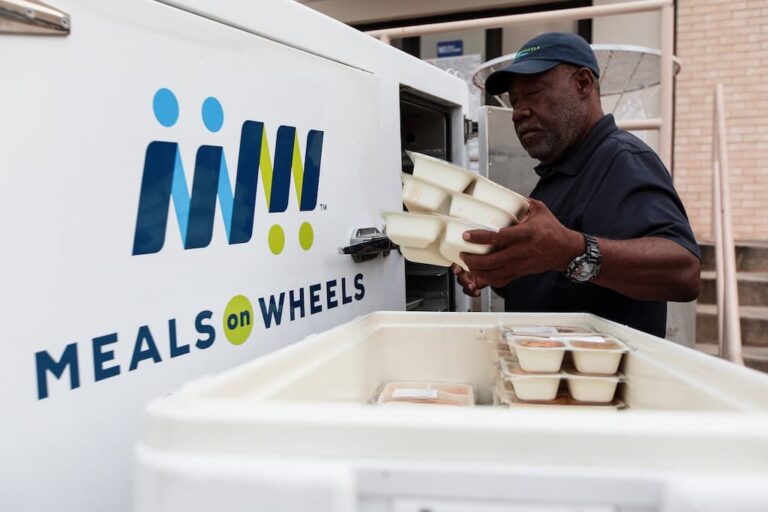What Happens if the Elderly Don’t Get Enough Carbohydrates?
If the elderly don’t get enough carbohydrates, they may experience hypoglycemia, mental fatigue, physical lethargy, constipation, and unintended weight loss due to muscle breakdown for glucose. Long-term deficiency can lead to ketosis, with symptoms including nausea, vomiting, dehydration, and electrolyte imbalances. Adequate carbohydrate intake is important for energy, brain function, muscle and organ tissue maintenance, and healthy weight management.

What are Carbohydrates and What Role Do They Play in the Body?
Carbohydrates are one of the main macronutrients found in food, along with protein and fat. The main types of carbohydrates are sugars, starches, and fiber.
Sugars are simple carbohydrates like glucose, fructose and lactose that are found naturally in fruits, vegetables and dairy. Starches are complex carbohydrates found in grains, legumes and starchy vegetables like potatoes. Fiber is the indigestible parts of plants that pass through the body undigested.
Carbohydrates play a key role in providing the body with energy. When carbohydrates are digested, they are broken down into glucose. Glucose is the main source of fuel for the body and is essential for cellular metabolism.
The glucose from carbohydrates is either used immediately for energy or stored in the muscles and liver as glycogen. When blood glucose levels drop, glycogen can be quickly broken down into glucose again to stabilize blood sugar.
Why are Carbohydrates Important for the Elderly?
Carbohydrates are especially important for the elderly for several key reasons.
The brain relies heavily on glucose for normal function and cognition. The brain uses around 130 grams of glucose per day, which accounts for over half of all glucose used by the body. For the elderly, maintaining stable blood glucose is essential to support memory, focus and decision making.
Carbohydrates also help maintain muscle and organ tissue in the elderly. With aging, muscle mass tends to deteriorate. Consuming adequate carbohydrates can help spare muscle protein breakdown and preserve lean muscle mass. Carbohydrates also ensure organs like the kidneys and heart get sufficient glucose for optimal function.
Additionally, carbohydrates play a role in healthy weight management in the elderly. Low carbohydrate diets can accelerate muscle loss as the body breaks down protein for glucose. Getting adequate carbohydrates can help maintain a healthy weight and body composition.
What are the Risks of Not Getting Enough Carbohydrates for the Elderly?
Inadequate carbohydrate intake comes with several risks for the elderly population.
One potential risk is hypoglycemia, which is abnormally low blood sugar levels. When glucose stores from carbohydrates run low, blood sugar can quickly plummet, resulting in fatigue, dizziness, confusion and even loss of consciousness in severe cases. Hypoglycemia is especially hazardous for the elderly.
Severely restricting carbohydrates can also lead to a state called ketosis. Ketosis occurs when the body relies heavily on fat for energy, resulting in accumulation of ketones in the blood. Ketosis can cause nausea, vomiting, dehydration and electrolyte imbalances.
Low carbohydrate intake can also negatively impact mental function. As glucose is the primary fuel source for the brain, inadequate supply from carbohydrates can impair cognition, memory and focus. Mental fatigue and inability to concentrate are common symptoms.
What are the Symptoms of Not Getting Enough Carbohydrates in the Elderly?
There are several key symptoms that may indicate an elderly person is not getting sufficient carbohydrates.
Changes in memory, mood and mental clarity are common early warning signs. The elderly may have trouble remembering details, following conversations or thinking clearly. Irritability, anxiety and depression can also occur.
Physical fatigue and lethargy are also symptoms of inadequate carbohydrate intake. Without enough glucose for energy, the elderly may feel constantly tired and weak. They may move less and have difficulty performing daily activities.
Other symptoms can include constipation, since fiber from carbohydrates helps maintain regular bowel movements. Unintended weight loss may also indicate the body is breaking down muscle for glucose.
How Much Carbohydrates Do Elderly People Need?
The Dietary Guidelines for Americans recommend that adults get 45-65% of their total calories from carbohydrates. For older adults over 51 years old, the recommended daily intake is 130g of carbohydrates for men and 100g for women.
However, carbohydrate needs can vary considerably based on the individual. Factors like metabolism, activity level, medical conditions and medications can all impact optimal carbohydrate intake. That’s why it’s important for older adults to work with their doctor or dietitian to determine their personal carbohydrate needs.
What are Some Good Sources of Carbohydrates for the Elderly?
There are many healthy, nutrient-dense foods that can provide carbohydrates for the elderly:
- Whole grains like oatmeal, quinoa, brown rice and whole wheat bread.
- Starchy vegetables like sweet potatoes, squash, peas and potatoes.
- Fruits like bananas, apples, berries, citrus fruits and melons.
- Milk, yogurt and cheese provide carbohydrates along with protein, calcium and vitamin D.
- Legumes including lentils, beans, chickpeas and peas.
- Small amounts of added sugar from syrups, honey or jelly can boost carbohydrate content.
Focusing on high fiber, minimally processed sources ensures maximum nutritional benefits. Variety is important to get different vitamins, minerals and phytonutrients.
How Can I Ensure My Elderly Loved One is Getting Enough Carbohydrates?
If you are caring for an elderly person, there are several practical steps you can take to boost their carbohydrate intake:
- Offer carbohydrate-rich foods at each meal and snack. For example, include fruit, yogurt, or whole grain toast for breakfast.
- Add extra vegetables, rice, pasta or potatoes to meals.
- Use higher carbohydrate ingredients in cooking and baking like whole wheat flour.
- Encourage small frequent meals and snacks throughout the day.
- Select nutrient-dense carbohydrates over empty calorie sources like sugar.
- Pay attention to signs they may need more carbohydrates like fatigue, irritability or confusion.
Consulting with a doctor or registered dietitian can provide personalized advice to ensure your elderly loved one is getting the right amount and types of carbohydrates for their unique health needs. With proper intake, carbohydrates provide energy, support cognition and promote health in the elder years.
Frequently Asked Questions
-
What happens if older adults don’t get enough carbohydrates?
Hypoglycemia is a condition in which your body doesn’t have enough carbohydrates. The body will then start to use fat as energy and lead to ketosis. Hypoglycemia can cause hunger.
-
Does United Healthcare pay for Weight Watchers?
United Healthcare provides members with a discounted registration fee and weekly attendance fees for Weight Watchers meetings.
-
Can I lose weight at 70?
Weight loss after 70 years is not as easy as losing weight at 30-40 or 50. It is possible, but it can be done. If your health is at stake, it will definitely pay off.
-
What is one food you could eat everyday?
People can stay well by including lean protein, veggies, and nuts every day to help them avoid certain chronic diseases. Certain plant foods like cruciferous veggies and berries contain beneficial compounds such as polyphenols, glucosinolates, and others.
-
Does Medicare cover weight loss programs?
If your doctor determines that you need treatment, Original Medicare Part A and B covers weight loss, therapy, screenings, and surgery. Medicare Advantage (Part C), plans cover weight loss programs if they are medically required.
-
What is the number 1 healthiest food in the world?
After scouring the entire list of candidates, we have decided that kale is the best food for health. Kale offers the most benefits and has the fewest disadvantages when compared to its competition.
-
What color grapes are the healthiest?
Grapes of all types are high in vitamins and minerals. The health benefits of black grapes are the greatest. Many nutritionists and health professionals recommend that black grapes be consumed over red grapes.
-
Does Weight Watchers accept Medicare?
Medicare does not cover many common weight loss procedures. This includes: Weight loss programs like Weight Watchers (WW), or Nutrisystem. Weight loss meal delivery services.
-
How many calories a day does a 70 year old woman need?
If you’re active, you should consume around 2,600 calories per day. If you’re sedentary or active, a female over 70 should consume between 1,600 and 2,000 calories per day.
-
Are grapes good for the elderly?
Researchers believe that grapes can slow down or prevent age-related macular disease (AMD), which is a devastating condition that affects millions of older people. These protective effects are thought to be due to grapes’ antioxidant properties.
-
How much protein should a 70 year old woman eat?
For women over 70, the current recommended daily dietary allowance is 0.36g per pound or 46g for a woman of 130 lbs. The same amount applies to all women aged 19 or older.
-
Does AARP have weight loss programs?
The AARP New American Diet includes three weight loss plans that you can follow. It helps you to lose as much as 10 pounds in just 2 weeks and maintain your vitality, happiness, and health for the rest of your life.
-
Is nutritionist covered by Medicare?
Dietitians and nutritionists are professional who must fulfill certain qualifications to offer nutritional guidance and information. Medicare does not cover nutritionists or dietitians unless you have specific qualifications.
-
Which is better green grapes or red grapes?
High in Antioxidants. In general, darker red grapes and purple grapes have higher antioxidant levels than either green or white. Grapes are rich in antioxidants that can protect cells against free radicals. These are natural side effects of biological processes.
-
How much exercise does a 72 year old woman need?
If you’re already active, aim to do 150 minutes or more of moderate activity per week. 75 minutes or more of vigorous intensity exercise if possible. Reduce the amount of time you spend sitting down or lying down, and replace long periods of inactivity with something.






